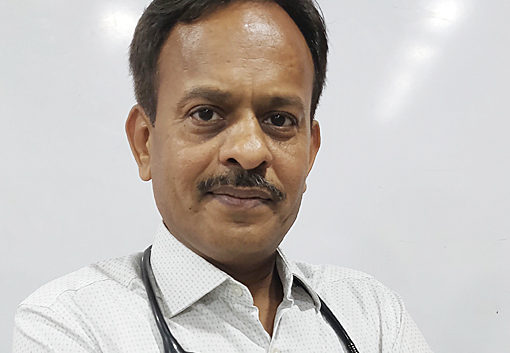Importance of Preventive Intervention and Awareness of Kidney Disease

Indore. The upcoming World Kidney Day is themed at ‘Kidney Health for Everyone Everywhere-from Prevention to Detection and Equitable Access to Care’.
Globally, Chronic Kidney Disease (CKD) is the 6th fastest growing cause of death and around 1.7 million people are estimated to die annually because of acute kidney injury globally. In India, it is estimated that a population of over 7.8 mn people are living with Chronic Kidney Diseases (CKDs)1.
“Chronic kidney disease (CKD) is when the kidneys stop working the way they should. A progressive loss in the functionality of our kidneys can be categorised as a chronic problem. The normal function of a kidney is to filter the blood and remove waste and excess salt from the body but in people with CKDs the kidneys are no longer able to filter the blood which causes serious disorders leading up to Dialysis and kidney transplants”, said Dr O P Rathi, DM Nephrologist, Bombay Hospital.
As per Centres for Disease Control and Prevention, the most common cause of CKD in population-based studies is found to be diabetic nephropathy. They also state that, approximately 1 of 3 adults with diabetes and 1 of 5 adults with high blood pressure may acquire the disease.
In addition to diabetes and high blood pressure, other problems that put you at greater chance of kidney disease include: heart disease, obesity (being overweight), and a family history.
Typically, kidney disease can be prevented and progression to end-stage kidney disease can be delayed with appropriate access to basic diagnostics and early treatment.
Explaining a few signs, Dr.Rathiadded, “The symptoms of a kidney disease doesn’t appear promptly, so getting tested is the only way to know if your kidneys are healthy. This means that there is a need of awareness on the importance of preventive measures throughout populations, service providers and policy makers”.
A few symptoms towards chronic kidney diseases include swelling of the feet, ankles or legs (edema), constant high blood pressure, tiredness and bone damage. But, living a healthy lifestyle can help prevent diabetes, high blood pressure and in-turn kidney diseases. Experts suggest reducing salt intake, eating a low-fat diet, a 30-minute exercise regime and regular detailed check-ups with the doctor.
“While all of this is important to keep your kidneys healthy, keeping the blood sugar in range as much as possible is critical. Lastly. It is absolutely critical to follow the medical course prescribed by the doctors to a patient. Many people leave the course half-way which is as good as not taking any medicines at all.”, highlighted Dr Rathi.
This World Kidney Day, the goal is to propagate adequate awareness amongst people by ensuring that everyone follows a healthy lifestyle and have access to high quality and well-equipped healthcare services for improving the overall health of everyone wholly.


